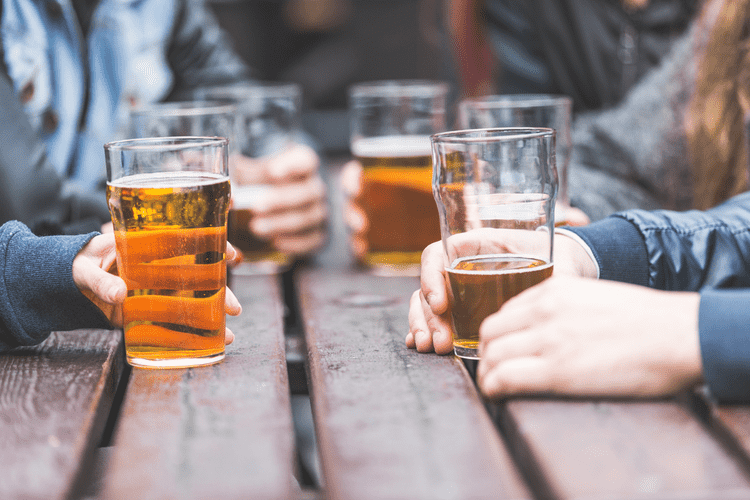Research has found that vitamin B3 also assists individuals in detoxing from alcohol. And Vitamin B5, also called pantothenic acid, converts food into glucose and helps remove alcohol from the body. According to the Institute of Medicine, adults should drink about nine to 13 cups of fluids per day. Because many factors can affect how much fluid your body needs, always ask your doctor or treatment team how much water you should be drinking each day.
During alcohol withdrawal, the body is adjusting to less fluid intake than usual, which is why hydration is so important during detox. Withdrawal symptoms like vomiting, diarrhea and sweating can also contribute to dehydration, but drinking water can help replenish lost fluids. People who abuse alcohol typically do not pay attention to alcohol recovery diet nutrition. Even those who were formerly healthy tend to let their good eating habits go as they become more consumed with the need to find and drink alcohol. This creates a two-fold nutritional problem because even if someone does manage to eat healthfully and get all their nutrients, alcohol prevents them from being fully absorbed.
Recovery Needs: Necessary Nutrients
It also affects your body’s ability to absorb B vitamins and folic acid. It can trigger irritable bowel syndrome, acid reflux, and other gastrointestinal illnesses, too. Good nutrition also helps your brain rework old connections and make new ones. This can make it hard to stay away from alcohol while you’re trying to get better. Cayenne pepper is a natural spice found in a variety of cuisines.
If you or a loved one is rebounding from substance dependence, please pay special attention to nutrition and proper nourishment. After all, food isn’t only what we’re made of – it’s also what we’re remade of. Secondly, addiction influences habits such as sporadic eating and poor nutrition that impair the body. Foods high in sodium should also be avoided, as they can increase your blood pressure and provide adverse heart effects while your body goes through withdrawal.
Best Foods to Eat in Recovery from Alcohol
As you’ve likely heard, heavy alcohol consumption can be damaging to your brain. And since your brain needs certain fatty acids to function optimally, eating enough good fats is key in a healthy diet for alcoholics. Protein deficiency is common in those who struggle with drinking. However, protein is important as it is a major nutrient and is the building block of your muscles. Proteins like meats, poultry, fish, beans, peas, eggs, nuts and seeds are rich in B vitamins, vitamin E, iron, zinc and magnesium, all of which are common alcohol-related deficiencies.
In addition to changing your diet, you can get extra support through treatment options such as medication to curb cravings, specialized alcohol therapy, and peer support groups. Monument provides evidence-based treatment entirely online and at affordable rates. To offset zinc deficiency, consider adding high-zinc foods to your diet. Meat of any kind is an excellent source of zinc, but it’s important to avoid excessive amounts of red or processed meats as they have been linked to increased risk for heart disease and cancer. Shellfish, legumes, seeds, nuts, dairy, and eggs are other excellent sources of zinc.
Healthy Diet for Alcohol Recovery
Unfortunately, many people attempt to quit drugs or alcohol on their own, which almost never works. No matter what the substance or the person’s history of abusing it, the withdrawal phase is where most people fail when trying to fight addiction https://ecosoberhouse.com/ alone. If you are ready to begin a life without alcohol, The Recovery Village is here to help. Contact us today to learn more about treatment programs, including alcohol detox and recovery plans that can work well for your situation.
